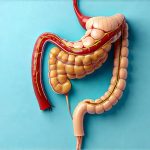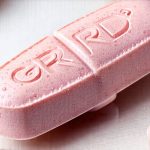Introduction
Millions struggle with functional gastrointestinal (GI) disorders – conditions like Irritable Bowel Syndrome (IBS), Functional Dyspepsia, and GERD – where symptoms are real and debilitating but standard medical tests don’t reveal a clear structural or biochemical cause. This can be incredibly frustrating for those seeking relief. Often the first line of defense is medication: antacids, proton pump inhibitors, anti-spasmodics, even antidepressants. While these can provide temporary symptom management, they frequently come with their own side effects and don’t address the underlying reasons why the GI system isn’t functioning optimally. This leaves many individuals searching for alternative approaches that offer lasting, holistic improvement without relying solely on pharmaceuticals.
The good news is there’s a growing understanding of the intricate connection between gut health, lifestyle factors, and overall well-being. Significant relief can be achieved through non-pharmacological methods – changes to diet, stress management techniques, mindful movement, and targeted behavioral therapies. These approaches aim not just to suppress symptoms but to restore healthy digestive function and improve quality of life. This article will explore practical strategies for functional GI relief that prioritize a holistic, medication-free approach, empowering you to take control of your digestive health.
Dietary Strategies for Gut Healing
Diet is arguably the cornerstone of managing functional GI disorders. It’s not necessarily about restrictive diets or eliminating entire food groups (though some temporary elimination may be helpful). Instead, it’s about understanding how different foods impact your unique system and making informed choices to support optimal digestion. A ‘one-size-fits-all’ approach rarely works; individual tolerance varies greatly. Focusing on whole, unprocessed foods is a fantastic starting point. These are naturally rich in fiber, vitamins, and minerals that nourish the gut microbiome – the trillions of bacteria living in your digestive tract which play a crucial role in health.
A common strategy for IBS sufferers, for example, is the Low-FODMAP diet. FODMAPs (Fermentable Oligosaccharides, Disaccharides, Monosaccharides And Polyols) are certain types of carbohydrates that can be poorly absorbed by some individuals, leading to fermentation in the gut and subsequent symptoms like bloating, gas, and abdominal pain. While not intended as a long-term solution, a temporary elimination diet followed by careful reintroduction can help identify trigger foods. Beyond FODMAPs, paying attention to food sensitivities – even those that aren’t full-blown allergies – is important. Keeping a detailed food diary noting what you eat and how you feel afterward can reveal patterns and pinpoint problem foods.
It’s also crucial to consider how you eat, not just what you eat. Mindful eating practices — slowing down, chewing thoroughly, and paying attention to hunger cues — can significantly improve digestion. Eating in a relaxed state is also vital; stress inhibits digestive processes. Staying adequately hydrated throughout the day is another fundamental aspect of gut health. Water helps move food through the digestive tract and supports overall bodily functions. Consider incorporating probiotic-rich foods like yogurt (if tolerated), kefir, sauerkraut, or kimchi to support a healthy microbiome.
Stress Management Techniques
The gut and brain are intimately connected via what’s known as the “gut-brain axis.” This bidirectional communication means that stress can directly impact digestive function, and conversely, gut health can influence mood and mental wellbeing. Chronic stress often exacerbates functional GI symptoms. Therefore, incorporating effective stress management techniques is paramount for relief. These aren’t about eliminating stress entirely – which is unrealistic – but about developing healthy coping mechanisms to mitigate its negative effects.
- Deep breathing exercises: Simple diaphragmatic breathing can activate the parasympathetic nervous system (the “rest and digest” response), counteracting the fight-or-flight response triggered by stress.
- Meditation and mindfulness: Regular practice can reduce anxiety, improve emotional regulation, and promote a sense of calm. Guided meditations are readily available online or through apps.
- Yoga and Tai Chi: These mind-body practices combine physical postures, breathing techniques, and meditation to reduce stress and enhance overall well-being.
Finding what resonates with you is key. Experiment with different techniques until you discover those that effectively help manage your stress levels. Even short bursts of relaxation – a few minutes of deep breathing or listening to calming music – can make a difference. Remember consistency is crucial; integrating these practices into your daily routine yields the greatest benefits.
The Power of Movement and Exercise
Regular physical activity isn’t just good for cardiovascular health and weight management; it also plays a significant role in digestive function. Movement stimulates peristalsis, the wave-like muscle contractions that move food through the digestive tract. A sedentary lifestyle can contribute to constipation and bloating. However, the type of exercise matters. High-intensity workouts may exacerbate symptoms for some individuals with functional GI disorders.
Low-to-moderate intensity exercises are generally more beneficial. Walking, swimming, cycling, and yoga are excellent choices. These activities promote blood flow to the digestive system, reduce stress, and encourage regular bowel movements. Aim for at least 30 minutes of moderate exercise most days of the week. Listen to your body and adjust the intensity as needed. Don’t push yourself beyond what feels comfortable.
Behavioral Therapies & Gut-Directed Hypnotherapy
Functional GI disorders often have a strong psychological component. Anxiety, depression, and past trauma can all contribute to symptom development and maintenance. Gut-directed hypnotherapy (GDH) is a specialized form of therapy specifically designed for individuals with IBS. It involves using hypnotic suggestion to alter the perception of visceral sensations – essentially retraining the brain to interpret gut signals differently. Studies have shown GDH to be remarkably effective in reducing abdominal pain, bloating, and other IBS symptoms.
Cognitive Behavioral Therapy (CBT) can also be helpful. CBT helps identify and modify negative thought patterns and behaviors that contribute to symptom exacerbation. It equips individuals with coping strategies for managing stress, anxiety, and chronic pain. Biofeedback is another technique where you learn to control physiological responses such as heart rate and muscle tension, potentially reducing gut reactivity. These behavioral therapies aren’t quick fixes but require commitment and participation. However, they offer a powerful way to address the psychological factors underlying functional GI symptoms and achieve lasting relief without medication.


















